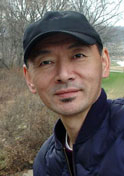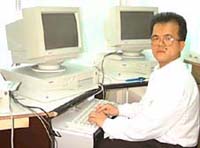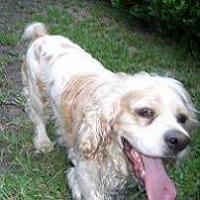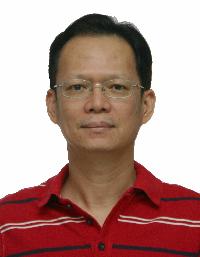| Pages in topic: [1 2] > |
Who's Hu? ( 談談胡錦濤訪美) Thread poster: pkchan
|
|---|
pkchan 
United States
Local time: 11:41
Member (2006)
English to Chinese
+ ...
Kevin, Since some members of this forum are US based translators, including myself, can we talk about Hu's presidential visit to the US. If you deem it is too political, I will drop this topic. Let us hear from you first before we say anything. pkchan
[Subject edited by staff or moderator 2006-04-18 20:06]
| | | |
Kevin Yang 
Local time: 08:41
Member (2003)
English to Chinese
+ ...
| Perhaps not, unless it has the merits for discussion from the linguistic point of view. | Apr 18, 2006 |
pkchan wrote:
Kevin, Since some members of this forum are US based translators, including myself, can we talk about Hu's presidential visit to the US. If you deem it is too political, I will drop this topic. Let us hear from you first before we say anything. pkchan
pkchan,
Thank you for the suggestion and consulting me about it! I would be very much interested in talking about it, too. But, I do not think it has to do much with our translation and can be too political, unless certain words or cultural aspects you see or read have the merits for discussion from the linguistic point of view.
Kevin
| | | |
| 大江东去,浪淘尽千古昏君! | Apr 21, 2006 |
吸烟危害健康!
| | | |
pkchan 
United States
Local time: 11:41
Member (2006)
English to Chinese
+ ...
TOPIC STARTER | In Terms of Linguistics | Apr 21, 2006 |
As advised by Kevin, I'll confine my comments to straightly linguistic terms. It seems that media outlets in the English speaking world have reached some sort of a consensus in their way to "name" the Chinese President. They put Hu's last name first, then followed by his first name/s "Jintao". By putting two Chinese characters together forming one word without even capitalizing the second Chinese character becomes a convenient practice. I was wondering whether or not overseas Chinese should foll... See more As advised by Kevin, I'll confine my comments to straightly linguistic terms. It seems that media outlets in the English speaking world have reached some sort of a consensus in their way to "name" the Chinese President. They put Hu's last name first, then followed by his first name/s "Jintao". By putting two Chinese characters together forming one word without even capitalizing the second Chinese character becomes a convenient practice. I was wondering whether or not overseas Chinese should follow suit. It is often too confusing to explain to non-Chinese speaking people that our name comprises two or three characters and we don't have middle names nor middle initials. So our Chinese President becomes "President Hu Jintao. But, when they address to our counterpart, they will say "President George W. Bush". Isn't that interesting or/and misleading? ▲ Collapse
| | |
|
|
|
Kevin Yang 
Local time: 08:41
Member (2003)
English to Chinese
+ ...
| Can any of you translate the phrase "China rocks!" into Chinese ? | Apr 21, 2006 |
Hi, pkchan
Thank you for your understanding!
I was watching the TV about Mr. Hu visiting Boeing Company. By the way, the Boeing Company or Seattle is three-hour driving from where I am. I noticed Mr. Hu made an effort to do what the Americans do. When a Boeing worker came and presented him a Boeing's baseball cap, he put it on right away and gave this American worker a hug, actually two hugs (one on the left and one on the right. I think that's the European style. The... See more Hi, pkchan
Thank you for your understanding!
I was watching the TV about Mr. Hu visiting Boeing Company. By the way, the Boeing Company or Seattle is three-hour driving from where I am. I noticed Mr. Hu made an effort to do what the Americans do. When a Boeing worker came and presented him a Boeing's baseball cap, he put it on right away and gave this American worker a hug, actually two hugs (one on the left and one on the right. I think that's the European style. The Americans do not switch sides when hugging people. Just one big frontal hug and done with it.) It was very touching to see that, although by seeing Mr. Hu's body language, he was a bit clumsy (because the Chinese people normally do not hug each other, but only shake hands), I think it is a very good move. It seemed he brought tears to the American worker. At that moment, the Boeing CEO yelled out loud "China rocks!" That was a nice scene I remembered well.
Can any of you translate the phrase "China rocks!" into Chinese ?
Kevin
[Edited at 2006-04-21 18:10] ▲ Collapse
| | | |
wherestip 
United States
Local time: 10:41
Chinese to English
+ ...
Kevin Yang wrote:
Can any of you translate the phrase "China rocks!" into Chinese ?
"中国好!" would be in the same vein as Mao's 人民公社好!
"中国顶好" 有点儿生硬. How about "中国好棒"?
| | | |
pkchan 
United States
Local time: 11:41
Member (2006)
English to Chinese
+ ...
TOPIC STARTER | Bear Hug, the Soviet Style | Apr 21, 2006 |
Simply by looking at the dollar sign on a multi-billion contract, surely the Beoing will do anything, everything to please President Hu. If there isn't any more appropriate translation, let's do it phonetically or phrenetically:支那樂吉。Regrading "Bear Hugging", the Soviet style is outdated. Even if they went too far to kiss each other's cheeks, it wouldn't be surprising.
| | | |
Shaun Yeo 
Local time: 23:41
English to Chinese
+ ...
pkchan wrote:
Simply by looking at the dollar sign on a multi-billion contract, surely the Beoing will do anything, everything to please President Hu. If there isn't any more appropriate translation, let's do it phonetically or phrenetically:支那樂吉。Regrading "Bear Hugging", the Soviet style is outdated. Even if they went too far to kiss each other's cheeks, it wouldn't be surprising.
正如pkchan先生所言,波音公司显然想讨好中国。但正因为如此,波音的CEO断不会公然称中国为支那,那样做,无疑当面污辱尊客。
这里有关于‘支那’的解说:
(http://zh.wikipedia.org/wiki/支那)
由於第二次世界大戰期間,日本以支那稱呼中國,所以中國人將「支那」視為對中國的一種蔑稱。由于“支那”是蔑称,于右任先生主张将“印度支那”(印度和中国之间的一个半岛)称为“中南半岛”。著名作家郁达夫在《沉沦》中将他對“支那人”一词给他的侮辱感進行了深切的描述。
[Edited at 2006-04-22 06:00]
| | |
|
|
|
Jianjun Zhang 
United Kingdom
Local time: 16:41
English to Chinese
+ ...
If someone calls me“支那人”or“Chinaman”,I'll regard it as a disparaging title and I reserve the right to correct the addresser in my own way.
Shaun Yeo wrote:
这里有关于‘支那’的解说:
(http://zh.wikipedia.org/wiki/支那)
由於第二次世界大戰期間,日本以支那稱呼中國,所以中國人將「支那」視為對中國的一種蔑稱。由于“支那”是蔑称,于右任先生主张将“印度支那”(印度和中国之间的一个半岛)称为“中南半岛”。著名作家郁达夫在《沉沦》中将他對“支那人”一词给他的侮辱感進行了深切的描述。
| | | |
Wenjer Leuschel (X) 
Taiwan
Local time: 23:41
English to Chinese
+ ...
| 有顯然輕蔑意義的字詞必須避免 | Apr 22, 2006 |
Shaun Yeo wrote:
疑惑……
Shaun, 你的疑惑是正確的。
在僑居地有許多華人稱當地人為「阿玻」,我不好破壞華人之間的和諧,當面批評些什麼,但我總會改稱「玻利維亞人」或「玻國人」。在該國的德國人也稱該國人 Bolis,同樣的,我不說二話,一律改稱 Bolivianer。
美國的法律明文規定,不得以人種、膚色、族群、宗教信仰等外在因素歧視他人,這是文明的規定。至於人們是否如此遵守,那是另一回事,但至少受到歧視時可以依據法律提出告訴,而且往往得到法律仲裁的正義。
我想,翻譯人對人種、膚色、宗教、文化等等差異應該有最大的寬容度,在翻譯時必須盡力避免使用帶有輕蔑歧視意義的字詞。德國人輕蔑外國人時,故意裝著聽不懂外國人說的德語,會用不正統的德語說 "Ick nix verstehen. Ick Deutscher.",意思是:「偶有聽沒有懂,偶素德國人。」這種對待外人的態度,翻譯人尤其必須避免。
前陣子在台灣有人熱烈檢討「台客」一詞。這個詞是蔣介石在中國內戰後逃亡到台灣時,隨著他的軍隊來到台灣的人士及其後代子孫輕蔑台灣本地人的稱法,有點像某些新加坡人輕蔑馬來族群的「土仔」或美國人稱非裔人士的 nigger 稱法。台灣人一直處於弱勢,所以從來沒有檢討過這種歧視,晚近二十年來則漸漸明白台灣人應有生存的尊嚴,因此極力反抗這種歧視。
文明的進步,其實就是先從意識到語文裡的輕蔑歧視,進而改善自己的言語習慣開始。翻譯人應該對這方面是最敏感的。
| | | |
Wenjer Leuschel (X) 
Taiwan
Local time: 23:41
English to Chinese
+ ...
|
Kevin Yang 
Local time: 08:41
Member (2003)
English to Chinese
+ ...
| To Wherestip and Wenjer | Apr 22, 2006 |
Wherestip: I think "rocks" is from "rock and roll" in the music world. It depicts the enthusiasm and vigorous excitement that is showing in the person. It is a popular colloquial expression among the young people. I can hear people here saying "You rock!" "He rocks!" etc. Your translation suggestion will work. I wonder if there is anything that has the equal punch as the English version.
Wenjer: I saw that picture of Mr. Bush grabbing Mr. Hu somewhere earlier, and wondered about the circumstance. Anyone knows? It seems to me it is saying "Hey, Mr. Hu, don't leave. I'm not done with my talking yet." It seems to be very rude by grabbing someone like that. But, perhaps it is also because Hu does not speak English, and Bush thought that it would not work efficiently by speak English to Hu at that moment.
Kevin
[Edited at 2006-04-22 16:32]
| | |
|
|
|
| 中国,牛!/中国,能!/中国,贼能/中国,了不起! | Apr 22, 2006 |
I cannot stress enough of the importance of a good monolingual dictionary. If you do not have one that offers definition of this use of 'China, rocks!', go get one now!
Kevin Yang wrote:
Hi, pkchan
Thank you for your understanding!
I was watching the TV about Mr. Hu visiting Boeing Company. By the way, the Boeing Company or Seattle is three-hour driving from where I am. I noticed Mr. Hu made an effort to do what the Americans do. When a Boeing worker came and presented him a Boeing's baseball cap, he put it on right away and gave this American worker a hug, actually two hugs (one on the left and one on the right. I think that's the European style. The Americans do not switch sides when hugging people. Just one big frontal hug and done with it.) It was very touching to see that, although by seeing Mr. Hu's body language, he was a bit clumsy (because the Chinese people normally do not hug each other, but only shake hands), I think it is a very good move. It seemed he brought tears to the American worker. At that moment, the Boeing CEO yelled out loud "China rocks!" That was a nice scene I remembered well.
Can any of you translate the phrase "China rocks!" into Chinese ?
Kevin
[Edited at 2006-04-21 18:10]
| | | |
Xiaoping Fu 
Canada
Local time: 08:41
Chinese to English
+ ...
Last Hermit wrote:
中国,牛!/中国,能!/中国,贼能/中国,了不起!
可不可以说“中国,劲抽!”
| | | |
Wenjer Leuschel (X) 
Taiwan
Local time: 23:41
English to Chinese
+ ...
Xiaoping Fu wrote: Last Hermit wrote:
中国,牛!/中国,能!/中国,贼能/中国,了不起!
可不可以说“中国,劲抽!” 
中國行!中國棒!中國呱呱叫!
[Bearbeitet um 2006-04-22 17:26]
| | | |
| Pages in topic: [1 2] > |



















